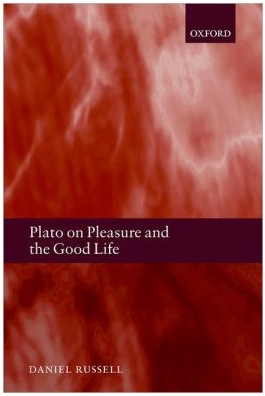Is Pleasure An “Attitude” or a “Sense”?
Is Pleasure an “attitude”? I am currently reading up on the background of PD3 and PD4, because I think they need to be viewed in the context of the world views at the time of Epicurus. PD1 is as rejection of false religious views, and PD2 is a rejection of false views of death. PD3 and PD4 seem also to be rejections of false views of pleasure and pain, but I think it is much less clear to us today what those false views were.
Here is one book I plan to read: “Plato on Pleasure and the Good Life.” I find this summary of the book very illuminating on how Plato’s view of pleasure differed from Epicurus’ view:
“Daniel Russell examines Plato’s subtle and insightful analysis of pleasure and …. shows that, for Plato, pleasure cannot determine happiness because pleasure lacks a direction of its own.” …. Plato presents wisdom as a skill of living that ….. brings about order in its materials. The “materials” of the skill of living are, in the first instance, not things like money or health, but one’s attitudes, emotions, and desires where things like money and health are concerned. ….. Among them [the “materials” of the psyche} is pleasure, which Plato treats not as a sensation but as an attitude with which one ascribes value to its object. …. Consequently, Plato rejects all forms of hedonism, which allows happiness to be determined by a part of the psyche that does not direct one’s life but is among the materials to be directed. …… Plato therefore offers an illuminating role for pleasure in ethics and psychology, one to which we may be unaccustomed: pleasure emerges not as a sensation or even a mode of activity, but as an attitude – one of the ways in which we construe our world—and as such, a central part of every character.”
If this is correct, then the Platonic “establishment” of Epicurus’ day viewed pleasure as an “attitude” – something the mind selects on its own through logic and reason. [Does not this ”attitude” view have a tremendously Stoic ring to it?] But we know that Epicurus’ “canon of truth” held pleasure/pain to be faculties of sensation on par with seeing or hearing. The canon of truth did not contain elements of choice, such as reason or logic or “attitudes,” at all. Epicurus was completely rejecting this Platonic view of pleasure.
It would therefore seem that Epicurus was faced with the need to show why the view of pleasure as an “attitude” was wrong. In PD1 he had shown that the establishment view of gods was wrong by pointing to the nature of perfection. In PD2 he had shown that the common view of death was wrong, by pointing to the nature of death. PD3 and PD4 seem to have a similar role. PD3 is not endorsing a particular way of living, but stating that the nature of pleasure is similar to other sensations. Any activity sensed to be pleasurable can only be measured or discerned up to the point where that activity is “pure.” In the case of pleasure, that means “without any pain.” Is this not how vision operates? –that vision can only detect information when there is some variation between light and dark? When something we look at lacks all darkness, then it is totally “white,” and nothing further can be detected in the scene. Similarly, hearing can only detect information when there is some variation between sound and silence. When the sound lacks all variation toward the silent, it is only a solid tone with nothing further to be detected in it. If so, then part of the meaning of PD3 may be that pleasure is not an attitude that we choose, but a faculty of sense that operates like any other sense.
This last paragraph may not be of any help at all. However, if – as appears clear – Epicurus saw pleasure and pain as faculties of sensation, and not as “attitudes,” then we should expect to see Epicurus making foundational points to show why Plato was wrong.

